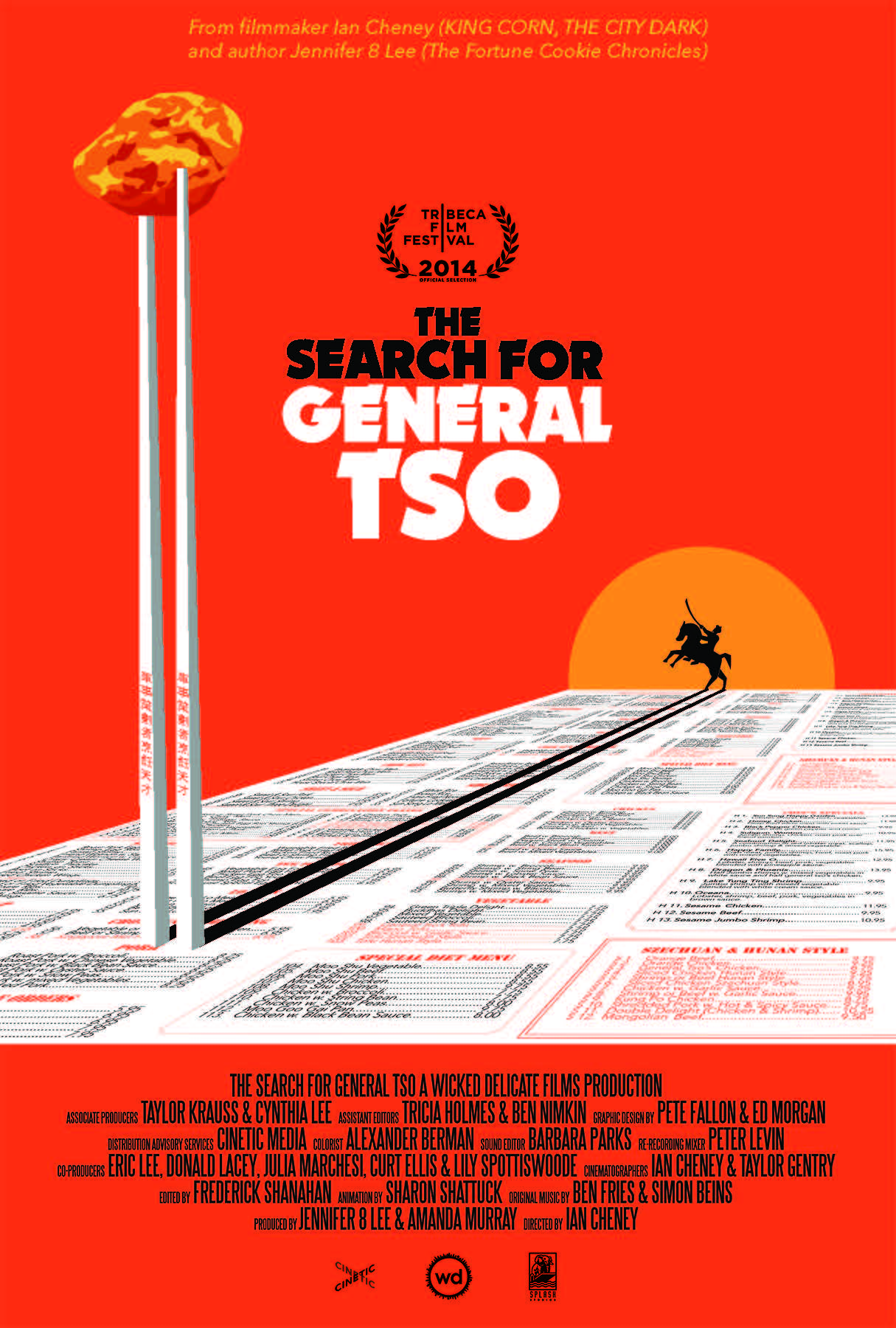by Freda Nada
語言:
English
Photo Credit: Promotional image from The Search for General Tso
Film Notes is a bimonthly column about Asian film by Freda Nada, part of an upcoming series of columns that will be introduced to New Bloom over the course of the next month.
THE SEARCH FOR GENERAL TSO is the latest food documentary to use food as a symbol through which to explore a culture at once familiar and exoticized. Tso is the kind of film that will end up on Netflix queues and consumed by businessmen on United Flights to Asian Pacific countries. The film exceeds in utilizing the titular dish to introduce elementary historical topics to its viewers despite its lack of compelling footage to accompany its major ‘discoveries’. In this sense the documentary is a spoonful of sugar for the oft painful narratives that define Asian immigration to the United States. The search itself has a disappointing, and I think, unambiguous end point with a famous Taiwanese chef which is deemphasized.
 Film poster for The Search for General Tso from the Tribeca Film Festival
Film poster for The Search for General Tso from the Tribeca Film Festival
Tso is highly cognizant of its target demographic. Like its subject matter, it takes a conventional, boneless approach to Asian-American history that will fit the generic US consumer palate. The documentary makes several large digressions to outline early AA experiences in San Francisco, the diaspora into middle America, and biographical segments on the General himself. Animated interludes are employed to illustrate and connect disparate clips.
Looking past its function as a primer for Asian-American assimilation, the documentary includes intriguing, if spurious, interviews. In the most interesting segments, the viewer meets an Asian-American accountant obsessed with chintzy Chinese-American dive joints and an aging takeout menu collector. These are fascinating micro-narratives about the melding of consumer capitalism and the body as locus for cultural transformation. The question of authenticity inevitably appears. Tso skirts around subjects similar to the essays in Eating Asian America which appeared on presses about a year ago.
Ultimately one can conclude that an underlying authenticity to General Tso chicken or the ‘American’ narrative is lacking. The sporadic humor The Search for General Tso stems nervously from this truth—the unobtrusive constructed, artificial experience of being an American, a cultural export that stands in opposition to the relative authenticity of the Asian experience.


